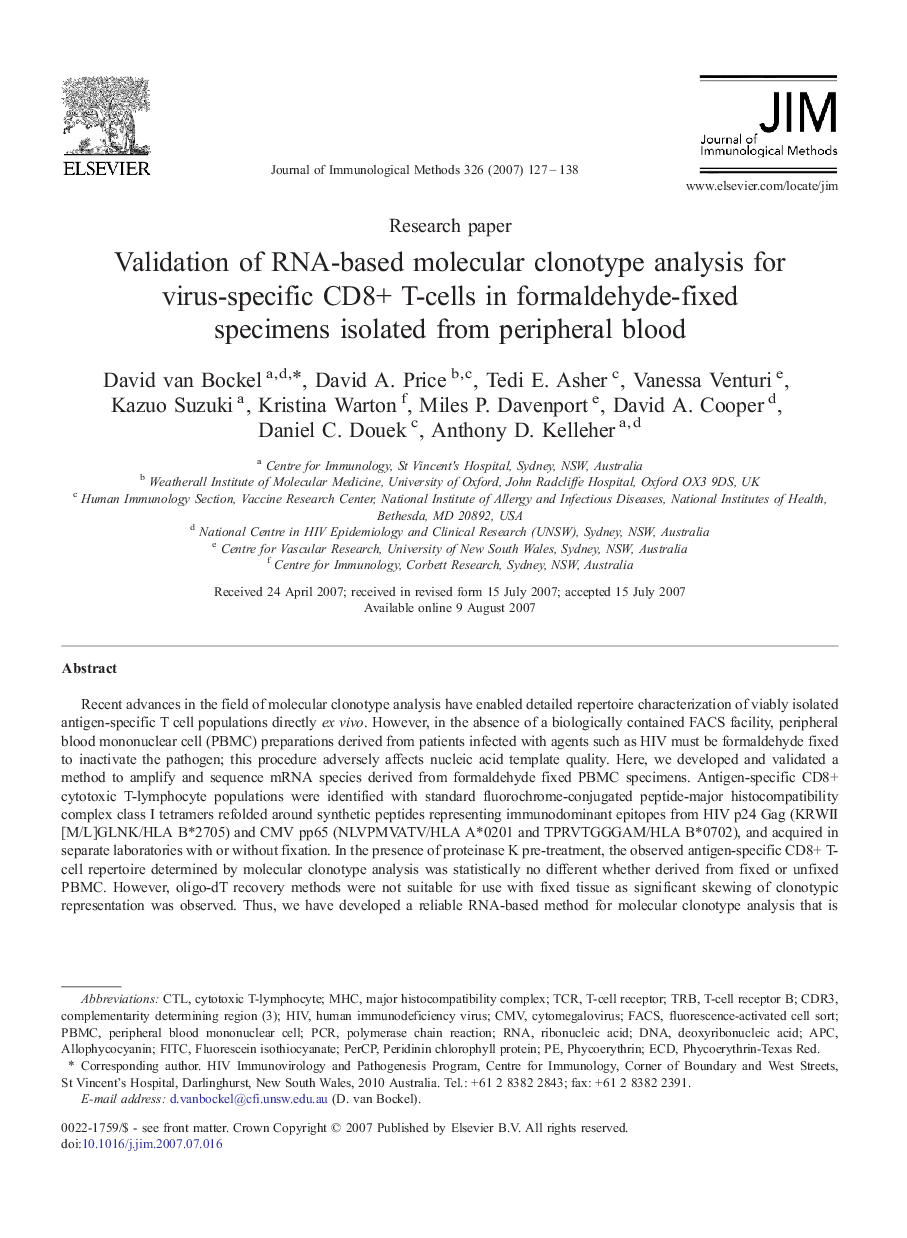| Article ID | Journal | Published Year | Pages | File Type |
|---|---|---|---|---|
| 2089425 | Journal of Immunological Methods | 2007 | 12 Pages |
Recent advances in the field of molecular clonotype analysis have enabled detailed repertoire characterization of viably isolated antigen-specific T cell populations directly ex vivo. However, in the absence of a biologically contained FACS facility, peripheral blood mononuclear cell (PBMC) preparations derived from patients infected with agents such as HIV must be formaldehyde fixed to inactivate the pathogen; this procedure adversely affects nucleic acid template quality. Here, we developed and validated a method to amplify and sequence mRNA species derived from formaldehyde fixed PBMC specimens. Antigen-specific CD8+ cytotoxic T-lymphocyte populations were identified with standard fluorochrome-conjugated peptide-major histocompatibility complex class I tetramers refolded around synthetic peptides representing immunodominant epitopes from HIV p24 Gag (KRWII[M/L]GLNK/HLA B⁎2705) and CMV pp65 (NLVPMVATV/HLA A⁎0201 and TPRVTGGGAM/HLA B⁎0702), and acquired in separate laboratories with or without fixation. In the presence of proteinase K pre-treatment, the observed antigen-specific CD8+ T-cell repertoire determined by molecular clonotype analysis was statistically no different whether derived from fixed or unfixed PBMC. However, oligo-dT recovery methods were not suitable for use with fixed tissue as significant skewing of clonotypic representation was observed. Thus, we have developed a reliable RNA-based method for molecular clonotype analysis that is compatible with formaldehyde fixation and therefore suitable for use with primary human samples isolated by FACS outside the context of a biological safety level 3 containment facility.
